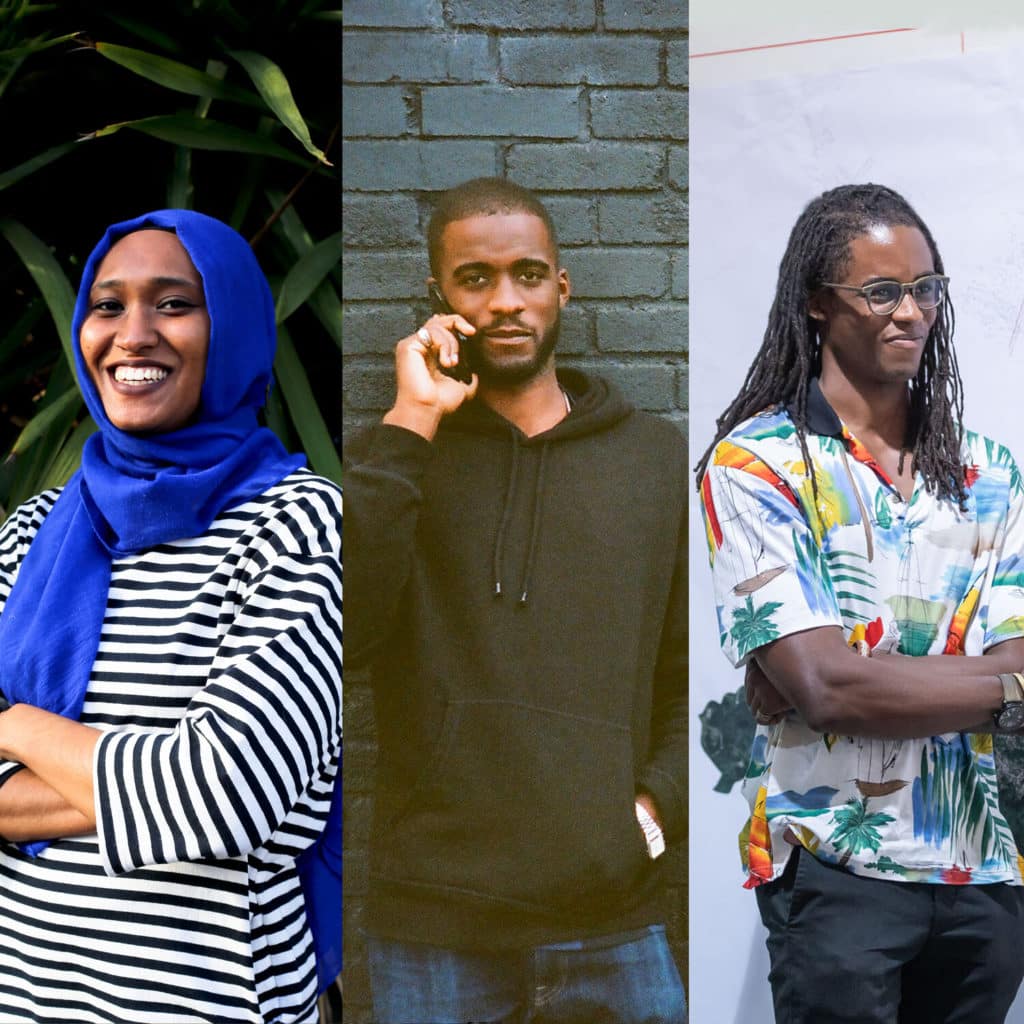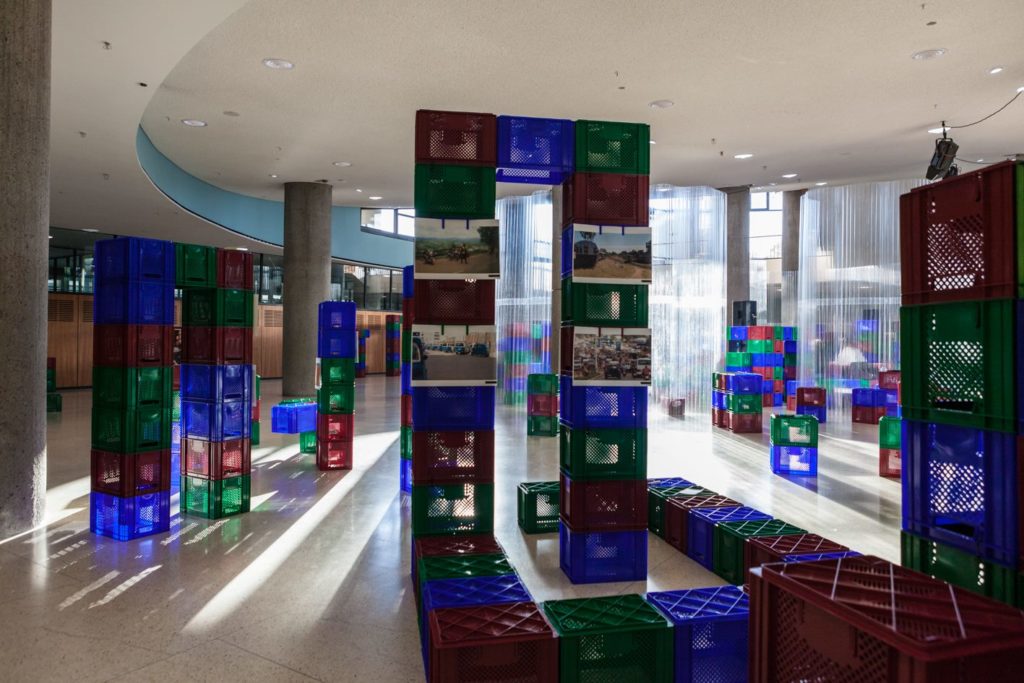United Kingdom (London)
RESOLVE is on a mission to tackle social issues through process-led design.
What are the emotions that your city evokes? How might you reimagine the way you interact with institutions and governments? How can you transform your everyday life through design? These are some of the questions that interdisciplinary design collective RESOLVE is asking in their locally focused work.

RESOLVE collective members Melissa Haniff, Seth Scafe-Smith and Akil Scafe-Smith.
RESOLVE is inspired by focusing on the hyper-local as a way to make communities stronger. The collective combines architecture, engineering, technology and art to address social challenges, centring around the idea of the site as a resource – in terms of valuing both local materials and local knowledge.
In the first few years, collective members Akil Scafe-Smith, Seth Scafe-Smith and Melissa Haniff contained themselves to Brixton, South London, asking how is it possible to grow and prosper as budding practitioners in the local soil of their neighbourhood?
Their first project in 2016, “Rebel Space”, was a temporary pavilion in Brixton, South London, designed as a permeable structure, open 24 hours a day and made from materials all sourced from within a mile radius of the site. An important part of the project was not just the installation itself, but the programming that happened alongside it; there were 8 days and nights of events that included exhibitions, talks, film screenings, music and roundtable discussions.

Rebel Space by RESOLVE, 2016.
Throughout these first years the collective focused on the local and tried to see what they were hyper-familiar with, with the eyes of a designer. They focused on creating a space for different artists, giving space to others and fostering creative careers. But as Akil Scafe-Smith says, they also made space for joy; “creating spaces for joy in a city which constantly repackages that joy as a luxury, is really quite an important part of our spatial work.”
After focusing on South London for several years, they then took their locally focused approach to interdisciplinary design to Sheffield, and they have since then opened to UK-wide and European projects. It was in Sheffield that they explored how people experience their cities through emotion, mapping emotions and making it performative. Through this process they were able to see the city through the eyes of people in Sheffield. They realised that they are not “just local workers, but that we are also working locally.”

OFF GRID by RESOLVE.
As Akil Scafe-Smith explained at Atlas’s Fixing the Future Festival 2022, “Programming for us was as important as the physical space,” and this emphasis on the programmes that surround exhibitions or installations is something that can be seen even as RESOLVE has moved beyond the borders of South London. For example, in the recent exhibition “Resolve Collective: them’s the breaks” at London’s Barbican Centre (30 March–16 July 2023), their large-scale installation and public programme critiqued institutions and gallery spaces. A core part of the project is the public programme that happens at key points alongside the exhibition.
Seth Scafe-Smith explains this approach in an interview with Dezeen:
“In our work we always want people to become part of the installation, as a way to remove the hierarchy between the artist and the audience, we want people to be able to sit in and exist on the material, but also we want people to be able to feel like they can add to it and take things away.”
This builds on their work with local communities, in which, as Akil Scafe-Smith puts it, their community-focused design celebrates “the knowledge that people have of their local areas, and how to transform their realities and their worlds.”

Common Thread, by REOLVE.
This transformation has taken place in the form of projects, workshops, publications, and talks in the UK and across Europe. They work across groups, engaging not only local communities but also governments and institutions, with the aim of “positively transform[ing] people’s neighbourhoods in their everyday lives.” Their experience working in local authorities helps them understand the way institutions work and helps them have the right conversations with the right people in order to get project off the ground.
RESOLVE has come a long way since their first project in 2016 and they are constantly adapting. While they are now moving into working in online spaces, process-led design is a very important way in which they work; this process involves taking the time to stop and reflect. They are currently asking, how can the role of a designer facilitate intervention from the bottom down?
For RESOLVE, design carries more than aesthetic value; it is also a mechanism for political and socio-economic change.
AtlasAction: Follow along with RESOLVE’s actions on Instagram and Facebook.
Project leader
Akil Scafe-Smith, Seth Scafe-Smith and Melissa Haniff
Support the Atlas
We want the Atlas of the Future media platform and our event to be available to everybody, everywhere for free – always. Fancy helping us spread stories of hope and optimism to create a better tomorrow? For those able, we'd be grateful for any donation.
- Please support the Atlas here
- Thank you!

